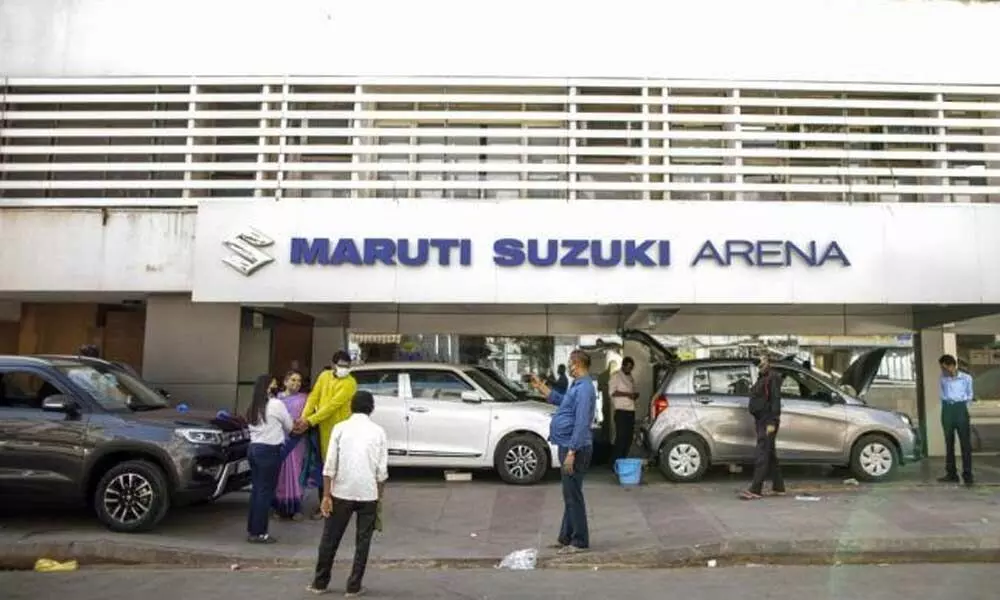Maruti Says, India's Strict Emission Rules Would Decline Car Sales

A Maruti Suzuki showroom in New Delhi.
Maruti, India’s biggest automaker has warned that , if strict European style emission rules would be implied starting from next year and it would lead to rise in car prices, having another blow to an auto industry.
Starting from next year, India's emission curbs, would in effect and this step is definitely positive step to tackle one of the major problem of the world, air pollution, but it would cost the nation 8.5% of its GDP.
Maruti, India's biggest automaker has warned that , if strict European style emission rules would be implied starting from next year and it would lead to rise in car prices, having another blow to an industry, which is already slump even before the pandemic hit.
Demand would fall further and instead of any growth there would be decline in the Industry, Maruti Suzuki india Ltd, Chairman R. C Bhargava in an intereview said, The industry view is that, it is already been suffering a decline because of Covid and on top of that, vehicles would be expensive due to new regulations.
Previous week, Automakers have urged the government to defer tougher emission standards, which are due to be implemented in 2 stages, one in April 2022 and the other one would be 2023. The changes will require the carmakers to reduce emissions nearing to 13% to 113 grams a kilometer.
If there is any increase in car prices, it would deter India's price-sensitive drivers. Mere 5% of cars sold are priced more than 1.5 million rupees ($20,000). The nation's per capital income is only $2000 each year, puts out cleaner but more expensive, electric cars beyond the reach of most consumers, Bhargava stated.
It would be really difficult for automakers to pour out their resources into the new technology considering the industry has invested nearing 900 billion rupees to transition to present emission standards, which set out a 68% reduction in nitrous oxide gases.
Maruti does not make any electric vehicles because of their cost and the country's sparsely charging infrastructure. The hybrid models have improved technology for cars running on compressed natural gas and more efficient gasoline cars would be enough for Maruti to meet the new requirements.
While the industry have been seeking for a deferment of 1 or 2 years, Bhargava stated that new emission rules must not be implemented until demand for cars recover. The new standards would potentially decrease car penetration to 2% in India, where the ownership presently stands at 30% per 1000 individuals, he stated. That compares to 816 per 1000 people in the U. S and 207 per 1000 in China.
A decline in the Auto industry not only hurts the carmakers, it will also hurt the entire economy, Bhargava stated. If the growth does not take place, then it would be counterproductive to do this. What is the use of having European standards, if people are not able to buy the cars? Hence industry wishes to defer the new regulation, so that price increase does not come at this time, which is a bad time.















